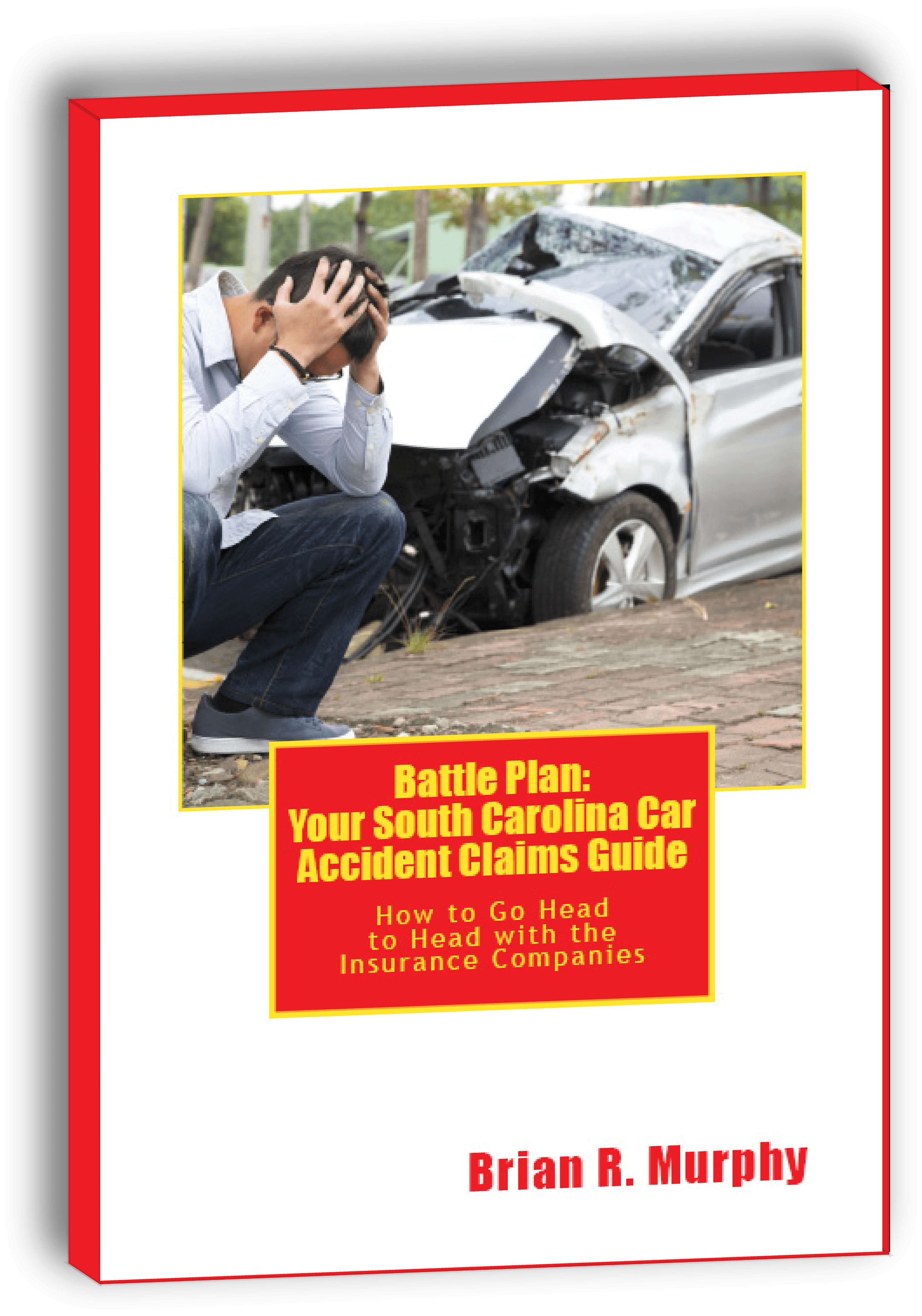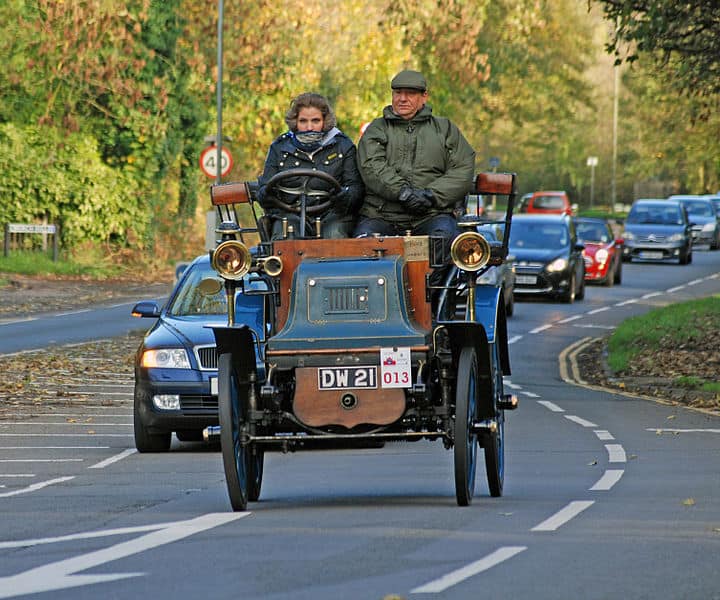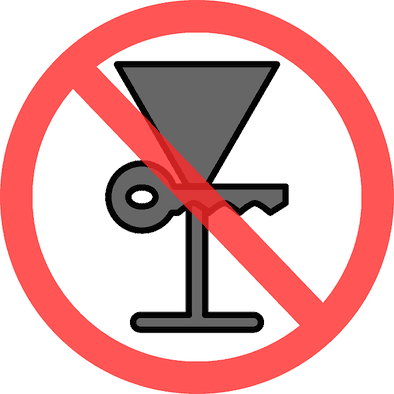Category Archives for "Traffic Tips"

Schools across South Carolina will begin their new year in the next couple of weeks. That means schools busses will be picking up and dropping off children before and after school. Here are six rules on when to stop and when to go when approaching a stopped school bus.

If you have been injured in a car accident, you need a Battle Plan.
For additional helpful articles and interesting information, get our newsletter.
Car Crashes are the #1 killer of teens. Remember that Safety is not an accident; it is a process of good decisions.
With the privilege of driving comes the responsibility to make safe choices. Safe choices include paying attention to the road. 58% of teens involved in traffic collisions are distracted. Summer is the most deadly season for teens.
Good driving decisions for teenagers include putting their mobile phones down, limiting the number of passengers, and keeping their eyes on the road and hands on the wheel.
Talk with your teen about safe driving decisions. Make the above rules mandatory for them to keep the privilege of driving.
For more information, please visit the National Organization for Youth Safety at www.noys.org. If you have been injured in a crash, please visit my website at www.brianmurphylawyer.com.
Car Crashes are the #1 killer of teens. Remember that Safety is not an accident; it is a process of good decisions. One of those good decisions is using your seat belt.
Did you know that 53% of teenage drivers who died in crashes were not wearing seat belts? Additionally, a recent survey found that 25% of teens said they don’t wear their seat belts.
Explain these statistics to your teenage drivers. Tell them that seat belts are an important piece of the vehicle’s safety systems. Tell them you expect them to wear them along with any passengers. After all, it’s the law in South Carolina.
For more information, please visit the National Organization for Youth Safety at www.noys.org. If you have been injured in a crash, please visit my website at www.brianmurphylawyer.com.

I know you have heard me say that speed kills, and it does. However, driving too slowly causes car accidents also. The South Carolina Driver’s License Manual reminds us that driving too slowly can also be dangerous.
The reason is this: When you drive to slowly, traffic backs up behind you. When traffic backs up behind you, some motorists may make dangerous moves to get around you. South Carolina has minimum speed laws in addition to maximum speed limits.
Remember to maintain the speed of the traffic around you No, that doesn’t give you a license to speed. You should go with the flow of traffic as long as you are not speeding.
 Did you know that thousands of Americans will be injured and hundreds will die in the next two weeks? USA Today reports that the end of the year holidays will bring bloodshed and carnage to our streets and highways. As most of us celebrate with office parties, family gatherings, and spirited shopping, some Americans won’t see the New Year. The National Safety Council estimates that over 40% of the traffic fatalities during the New Year’s period were caused from drinking and driving. How can you help? The only foolproof way to avoid causing an alcohol related fatality is to avoid alcohol before driving. Make a commitment today to stop the bloodshed by abstaining from alcohol before driving. If you would like to talk to me about your car accident, please call me at 888-510-9359 or visit my website at www.brianmurphylawyer.com. Also read, 3 Things to Know Before Talking to Anyone About Your Car Accident Case or request my free South Carolina Car Accident Claims Guide in Plain English.
Did you know that thousands of Americans will be injured and hundreds will die in the next two weeks? USA Today reports that the end of the year holidays will bring bloodshed and carnage to our streets and highways. As most of us celebrate with office parties, family gatherings, and spirited shopping, some Americans won’t see the New Year. The National Safety Council estimates that over 40% of the traffic fatalities during the New Year’s period were caused from drinking and driving. How can you help? The only foolproof way to avoid causing an alcohol related fatality is to avoid alcohol before driving. Make a commitment today to stop the bloodshed by abstaining from alcohol before driving. If you would like to talk to me about your car accident, please call me at 888-510-9359 or visit my website at www.brianmurphylawyer.com. Also read, 3 Things to Know Before Talking to Anyone About Your Car Accident Case or request my free South Carolina Car Accident Claims Guide in Plain English. 7 Thanksgiving Driving tips
7 Thanksgiving Driving tipsParents are the most important and effective roll models for children. Children understand when their parents drive too fast, cut someone off, or don’t completely stop for a traffic signal. They pay much more attention to the things their parents do. Following the traffic safety rules gives children a good example of how to drive safely. When it is their time to start driving, they will rely on the example their parents set for them.
A child may place special emphasis on lessons learned when they are young. While you are driving your children around, explain why you are driving the way you are. Point out that you stop completely for stop signs. Tell them why you are slowing down while driving in the rain. Explain to them why you are increasing the distance between your car and the car in front of you during bad weather. Follow up with them the next time the situation comes up by asking them why they think you are driving a certain way. Children will learn quickly and remember these lessons when they start driving.
Take a driver education course with your teenage driver. Many parents may not know the best ways to teach their teenage drivers. With education, a parent can help young drivers fully recognize and appreciate dangerous situations. Taking the course together will allow a parent to re-enforce the training in real-life situations.
Have your teenage driver enter into a safety contract with you. The safety contract can detail the expectations you have for your young driver’s continued driving privilege. You can even include continued education as one of the contract’s items. For some examples, check out Driving Skills for Life, developed by Ford and the Governors Highway Safety Association or Checkpoints developed by National Institute of Child Health and Human Development.
One of the most effective safety initiatives in recent years is the graduated driver’s license program. While these programs restrict the situations that newly licensed driver’s can drive in, parents must enforce those restrictions. Although there is a risk that a driver will be caught by law enforcement, the most effective method of making sure teens follow the restrictions is for parents to enforce them.
Anytime you witness good driving from your teen driver, reward them. Rewards can be praise, extra allowance, or later curfew. Use your imagination and reinforce good driving behavior.
Finally, monitor your teen’s driving. You can monitor with a GPS device, smartphone, or plug in hardware. Do a search for “monitor teenage driver” for more resources.

I see it all the time in my neighborhood. Drivers approach a stop sign, slow, and then round off the turn without completely stopping. It’s illegal and everyone knows it. For some reason, we just won’t take the time to follow certain traffic safety rules. Here are five reasons you should always completely stop at stop signs.
I know you know its illegal. Everyone knows that rolling through stop signs is illegal. You most likely won’t get caught in your neighborhood. However, stopping at stop signs in your neighborhood may be the most important place you should always completely stop.
Once you get in a habit of rolling through the neighborhood stop sign, you begin to pay less attention to what you are doing. You glance in both directions, but you miss the car coming toward you. Perhaps you miss the soccer ball rolling down the street and child following behind. No one ever intends to cause harm to another, but your choice to roll through that stop sign can lead to horrible consequences.
Children don’t do what we tell them to do, children do what we do. If we roll through stop signs, our children will when they start driving. Worse, our behavior teaches children not to follow some safety rules if there is a time saving benefit.
Our children know that cars must stop at stop signs. The decisions they make are dependent on how the world works around them. Children may cross the road, counting on you obeying the safety rules and stopping at the stop sign. Children may continue after the soccer ball rolling down the street, because they are depending on you following the safety rules.
Ultimately, we all set the safety rules for our community. If more of us set an example and obey the rules, others will follow as well. As our community places more importance on following the safety rules, the safer our community will be.
The extra few seconds you stay at the stop sign will be well worth the cost.
Its summer time and that means being on a boat. Please remember that boating safety means being responsible. Being responsible means using alcohol safely.
Here is your fool-proof way to avoid getting an alcohol related ticket out on the water! Don’t drink alcohol if you are operating a boat.
Otherwise, South Carolina Law says that an operator of a boat must not use so much alcohol (or any other drug) so that their ability to operate the boat is “materially and appreciably impaired.” Don’t believe me, look it up here.
So how does law enforcement determine if you are “materially and appreciably impaired?” Law enforcement investigates boating alcohol violations the same way law enforcement investigates driving under the influence. However, the field sobriety tests are modified so that law enforcement can give the tests on a boat.
If you have been hurt in an accident:
South Carolina finally passed a statewide texting ban on June 9, 2014. Here is what you need to know:
Click here for the full text of the law.